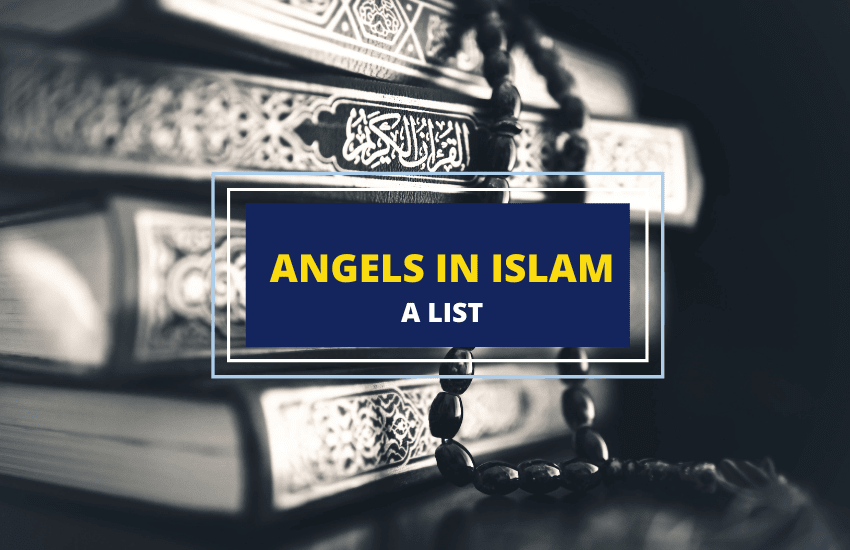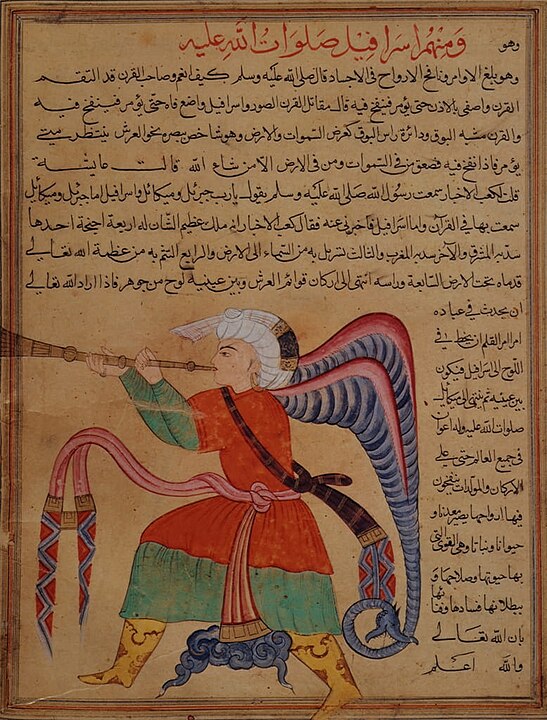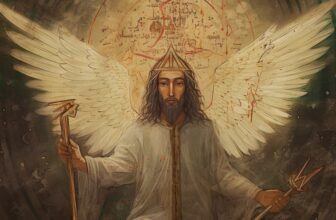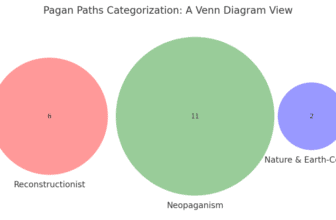
Table of Contents
You can see them on tapestries, Renaissance paintings, magnificent sculptures; you can encounter them on buildings and in popular culture. They are popularly associated with Christianity.
Let’s discuss angels, not just as celestial beings in Christianity, but powerful forces found also in Islam. The angels of Islam share many similarities with their Christian counterparts, but there are many differences that make them unique as well. Here’s a look at the most important angels of Islam.
Significance of Angels in Islam
According to Muslim beliefs, the entire motion of the universe, and the activities of everything that breathes, moves, or sits still, is done so under the will and guidance of Allah.
Allah is however not absolutely involved in every single aspect of maintaining the existence of everything nor does he aim to do so. Allah is accompanied by his creations, made out of pure light and energy that magnificently radiates. These creations are called angels, or Malaikah, of which the most significant are Mika’il, Jibril, Izra’il, and Israfil.
Angels can take human form and take care of humans. However only prophets are able to see them and communicate with them. Therefore, someone who is not a prophet is unlikely know that they are in a presence of an angel.
These beings are often presented as tall, winged creatures, clothed in magnificently colored robes unlike anything that can be seen on an average human.
There are several different angels in Islamic tradition, but the four main archangels of Islam are as follows:
1- Mika’il the Provider
Mikael is important for his involvement in providing for humans. He provides and ensures that there is plenty of rain for crops, and through these provisions, he ensures that they do not disobey God and follow his words and orders.
Mika ‘il sings hymns and praises Allah for mercy for humans. He is presented as protecting Allah’s worshipers and asking Allah to forgive their sins. He is a merciful friend to humanity and rewards those who do good.
2- Jibril the Messenger
In Christianity, Jibril is known as the Archangel Gabriel. He is the messenger of Allah, who communicates Allah’s messages and translates Allah’s will to humans. He is an intervening agent between Allah and his worshipers.
Divine revelation is brought to prophets whenever Allah wishes to communicate to them. Jibril is the angel that will interpret the divine mind of Allah and translate or print the holy words of Allah, whether it is for Jesus or Muhammad.
Jibril communicated the holy scripture to the Prophet Muhammad in the form of the Qur’an. Because of this, Jibril is also known as the Angel of Revelation, as it was he who revealed the words of Allah to the prophet.
Jibril is also the angel who talks to Mary and tells her that she is pregnant with Isa (Jesus).
3- Izra’il the Angel of Death
In Islam, Izra’il is in charge of death. He is associated with death and ensuring that the souls are delivered from their dying human bodies. In this regard, he plays the role of a psychopomp. He is responsible for terminating human lives in accordance with the divine commands and the will of God.
Izra’il holds a scroll on which he records the names of men at birth, and erases the names of those who have died.
4- Israfil the Angel of Music

Israfil is important to Islamic tradition as he is believed to be the angel that will blow the trumpet on the day of judgement and announce the final judgement. On the day of judgement, known as Qiyamah, Israfil will blow the trumpet from atop a rock in Jerusalem. As such, he is known as the angel of music.
It is believed that humans enter a state of waiting called Barzakh, and they wait until Judgement Day. Upon dying, the human soul is questioned, and should it answer correctly, it may sleep until the Judgement Day.
When Israfil blows his trumpet, all the dead will rise and gather around mount Arafat to wait for their judgement by Allah. Once everyone is risen, they will be given a book of deeds that they will have to read aloud from and hide nothing about who they are and what they did during life.
Are The Jinn Angels?
The Jinn are another sort of mysterious beings attributed to Islamic traditions, who are ancient and even predate Islam. Jinn are not of human origin, so does that make them angels?
Jinn are different from angels in that they have free will and are created out of frightening fire. They can do as they wish, and their purpose is certainly not to obey God. They are often seen as evil beings, who harm humans.
On the other hand, angels do not have free will. They are created out of pure light and energy and cannot exist without God. Their sole role is to follow his dictates and ensure that his will is translated to humans and actualized.
Guardian Angels in Islam
According to the Qur’an, every person has two angels following them, one in front and the other behind the person. Their role is to protect humans from the evil of Jinns and other devils, as well as to record their deeds.
When Muslims say Assalamu alaykum, which means Peace be upon you, many will look to their left and then their right shoulder, acknowledging the angels that are always following them.
Guardian angels take note of every single detail of a human life, every feeling and emotion, every action and deed. One angel notes the good deeds, and the other records the bad deeds. This is done so that on Judgement Day, humans will be allocated either to heaven or sent to the fiery pits of hell to suffer in
Wrapping Up
Belief in angels is one of the fundamental pillars of Islam. Angels in Islam are magnificent celestial beings made of pure light and energy, and their sole mission is to serve Allah and carry out his will. They are known to help humans by bringing sustenance and delivering messages from Allah to his worshipers thus serving as intermediaries between Allah and his faithful.
Angels have limited free will and exist solely to obey Allah and they cannot turn their backs on him. They have no desire to sin or go against Allah. Of the angels in Islam, the four archangels are among the most important.








